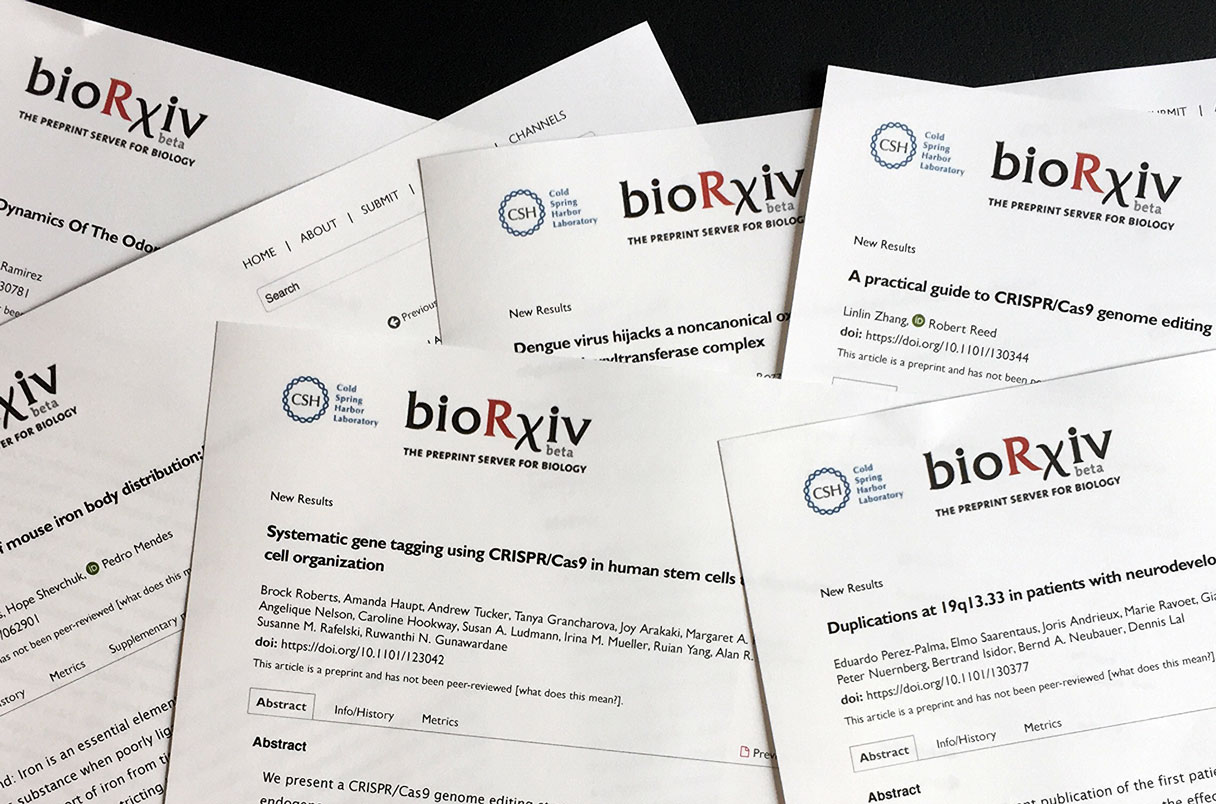
**Open Science Essentials in 2 Minutes, Part 4**
Prior to the publication of a research article in a journal, you have the opportunity to make it freely accessible for anyone to view. You can do this on your personal website, or alternatively on a preprint server, like [psyarxiv.com](http://psyarxiv.com/), where fellow researchers also post their preprints. This initiative is backed by the [OSF](https://mindhacks.com/2017/11/09/open-science-essentials-the-open-science-framework/), which ensures its permanence and helps you locate other researchers’ work effortlessly.
Preprint servers have been utilized for many years in the field of physics but are increasingly becoming prevalent in various academic disciplines. Preprints facilitate swift distribution of your research, which is particularly vital for researchers at the beginning of their careers. Preprints are citable, and indexing services such as Google Scholar will link citations of your preprint to the record of your eventual journal article. Moreover, preprints enable work to be evaluated (and mistakes rectified) prior to final publication.
**What occurs once my paper is published?**
Your research stays accessible in preprint form, guaranteeing a non-paywalled version is available, which may lead to increased readership and citations. If you upload a version of the manuscript following its acceptance for publication, it is referred to as a post-print.
**What about copyright?**
In general, journals hold the rights to the formatted, typeset edition of your published article. This is why you often are not permitted to upload the PDF version to your own website or a preprint server, but there is no restriction against uploading a version containing the same content (differently formatted, yet holding the same information).
**Will journals reject my paper if it is already “published” via a preprint?**
[Most journals](https://en.wikipedia.org/wiki/List_of_academic_journals_by_preprint_policy) permit or even promote preprints. A decreasing number do not. You can verify specific journal policies [here](http://www.sherpa.ac.uk/romeo/index.php).
**Am I at risk of being scooped?**
Preprints enable you to timestamp your work before its publication, helping to establish priority on discoveries and offering some protection against being scooped. However, if you possess a project that you want to keep confidential until published, preprints might not be the best option.
**When is the right time to upload a preprint?**
Submit a preprint at the time of journal submission, with each subsequent submission, and at acceptance (thereby making it a post-print).
**What prevents individuals from uploading low-quality work to a preprint server?**
There is nothing preventing this, but since maintaining a strong reputation for quality research is essential in academia, doing so is not recommended.
Useful links:
Part of a series:
1. [Pre-registration](https://mindhacks.com/2017/11/09/open-science-essentials-pre-registration/)
2. [The Open Science Framework](https://mindhacks.com/2017/11/09/open-science-essentials-the-open-science-framework/)
3. [Reproducibility](https://mindhacks.com/2018/01/02/open-science-essentials-reproducibility/)